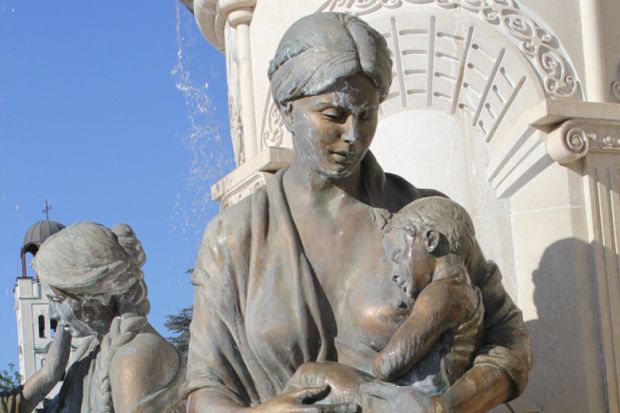The Hand That Rocked the Cradle: The Art of Birth and Infancy
Sue Laurence
Unicorn Press
The history of childbirth and infancy is reflected in paintings, sculpture and objects such as birthing chairs, earthenware cradles, amulets to ward off teething pains, hexagonal wooden baby walkers, maternity dresses – and even satirical images of drunken wet nurses. Sue Laurence tells the story, in Western Europe and North America, from the late Middle Ages to the early 20th century. Full of strange, beautiful and sometimes disturbing images, the book considers conception, the birth itself, “lying in”, gifts and rituals, and “the cult of breastfeeding” as well as a horrific dark side of abandonment and abuse.
The Birth of Modern Theatre: Rivalry, Riots, and Romance in the Age of Garrick
Norman S. Poser
Routledge
For Norman Poser, the 18th century represents a turning point in British theatre that has shaped it right down to today. Instead of being owned and controlled by royal or noble patrons, companies had to rely largely on the paying public (who would sometimes start a riot if they weren’t happy). Actors led by David Garrick (1717-79) abandoned declamation and formulaic expressions of emotion for much more naturalistic styles of performance, based on psychology and close observation. They also became genuine celebrities for the first time. This book vividly reconstructs their lives, careers and occasional scandals.
Atlas of Poetic Botany
Francis Hallé; translated by Erik Butler
MIT Press
Biologist Francis Hallé has spent 40 years exploring the rainforests and has found them to be “a universe of magical allure”, rich in “aesthetic satisfaction, wonder, and poetry”. The huge trees may be impressive and the animals more obviously appealing, yet it is the plants that deserve to be celebrated for their “strange character, bizarre appearances, and unexpected humor”. Here Hallé presents his compelling descriptions and memories of some of the more remarkable ones, accompanied by his lovely sketches – far more effective than photographs, he believes, in capturing the reflection and “dialogue” necessary when “one stands face to face with an alien”.
The Golden Rhinoceros: Histories of the African Middle Ages
François-Xavier Fauvelle; translated by Troy Tice
Princeton University Press
The Africa of pharaonic Egypt and the Roman era is relatively familiar; and so is the period when the continent was “discovered” and then exploited by Europe. But what of the vast epoch in between? Here François-Xavier Fauvelle has assembled some powerful fragments of Africa’s history from the 8th to the 15th centuries. Although it was deeply engaged with the rest of the “mediaeval” world, we have to rely largely on “documents produced by outsiders”, written in everything from Chinese to Portuguese, though most are in Arabic. Once we take account of such texts and the many treasures archaeologists have unearthed, suggests Fauvelle, Africa’s “dark centuries” are revealed as something of a “golden age”.
Technically Wrong: Sexist Apps, Biased Algorithms, and Other Threats of Toxic Tech
Sara Wachter-Boettcher
Norton
On Christmas Eve 2014, Facebook presented a friend of the author’s with an image of his Year In Review based around a picture of his six-year-old daughter. She had recently died of cancer. Women mentioning rape or domestic abuse to AI personal assistants on smartphones are often greeted with jokes or mockery. Silicon Valley, argues Sara Wachter-Boettcher, is “a world of mostly white guys who’ve been told they are special”. The result is “shallow perceptions of audiences and needs” and “products that, at best, leave out huge percentages of their users”. We all need to start fighting back against such “toxic tech”.
